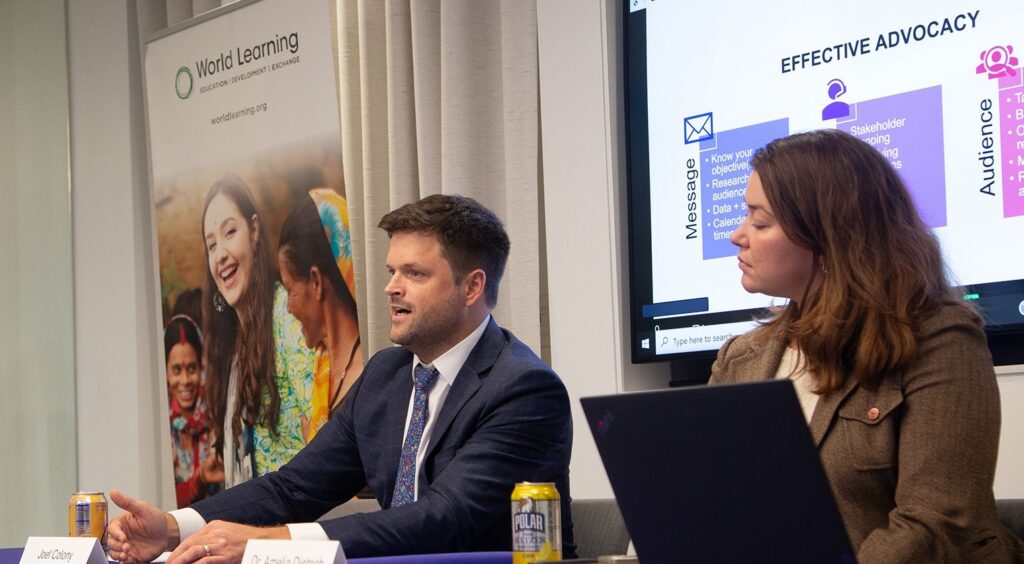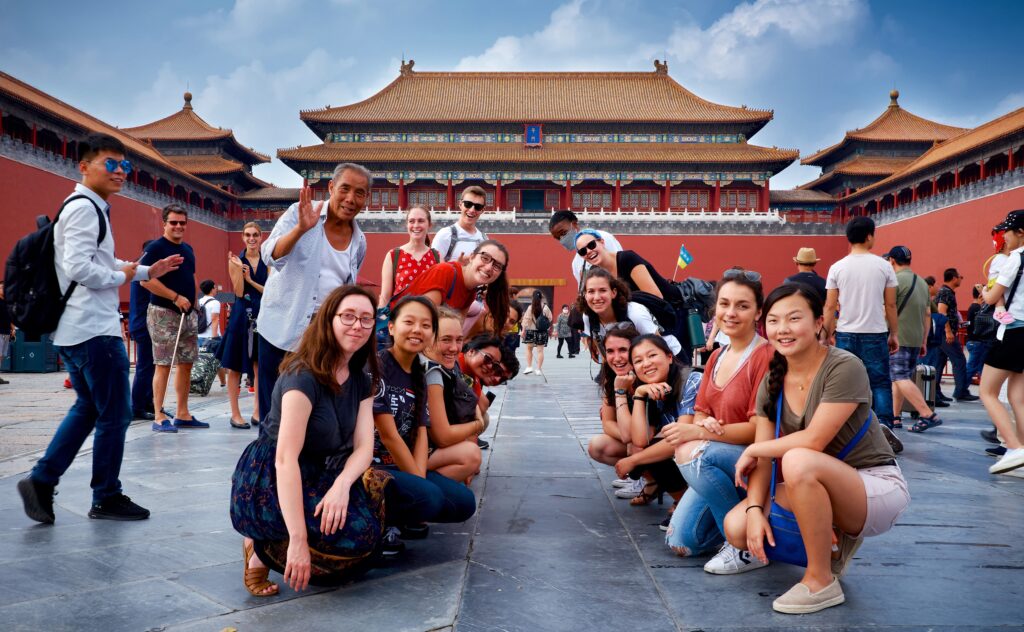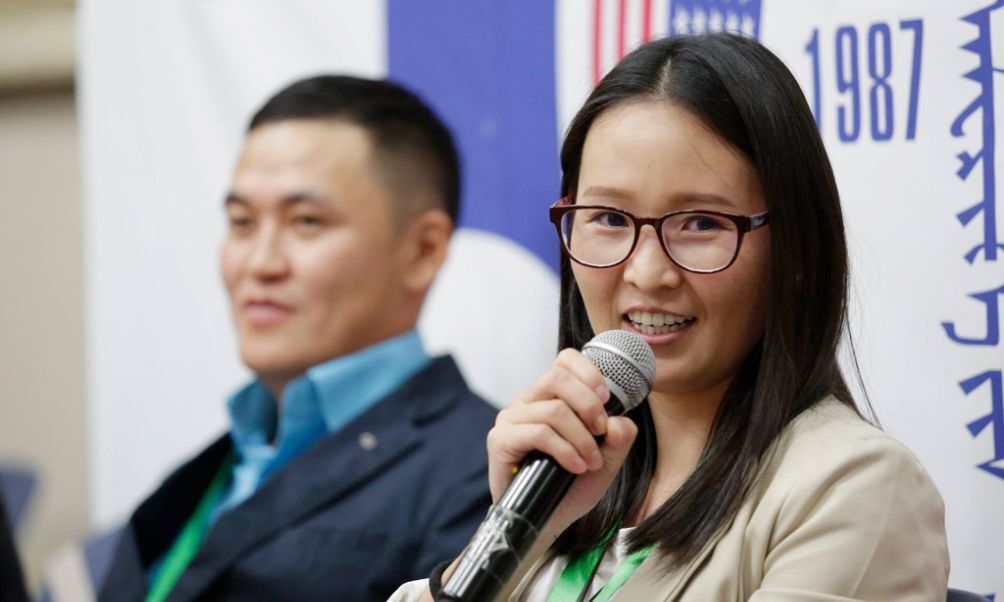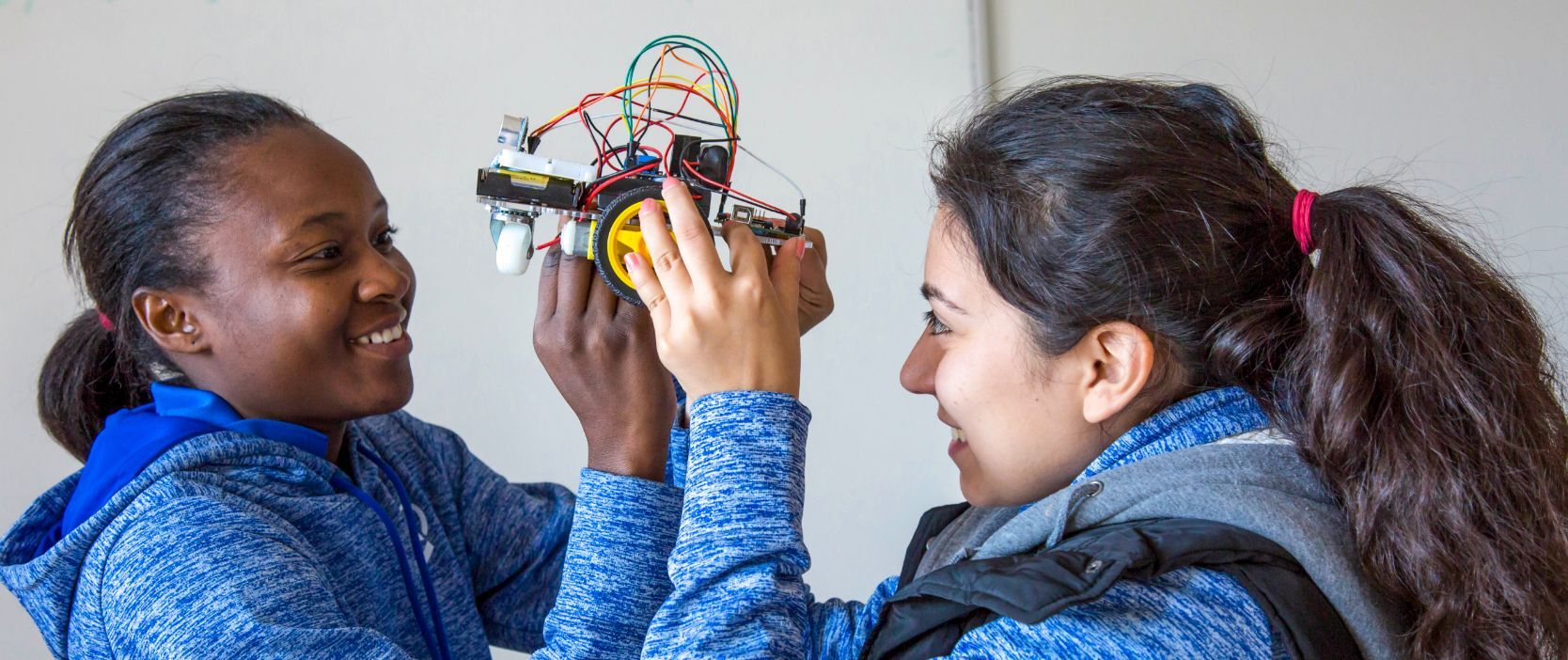-
What We Do
- WHERE WE WORK
-
About Us
 Welcome Message from Carol Jenkins, CEO
Welcome Message from Carol Jenkins, CEOWorld Learning believes that the best hope for peace, justice, and sustainability lies in bringing people together. Through cultural immersion, experiential learning, and information sharing, our programs equip others to collaboratively address the most pressing issues of our time.
Throughout my years at World Learning, I have had the fortunate opportunity to meet with many of our participants, partners, and alumni—a global network of learners. Our programs help them understand other cultures, master new skills, and cultivate networks. Our teaching and training methodologies empower them to find locally relevant, sustainable, and implementable solutions. Our approaches emphasize flexibility and adaptability that help them tackle real-world problems. They, in turn, make extraordinary changes in their lives and communities.
Please join us—and those we work with and serve around the world—in our pursuit to create a brighter and better future for all.
Carol Jenkins | CEO, World Learning
Allen Cutler | Chair, Board of Trustees - Get Involved
Media Center > Story
For next generation of American leaders, studying abroad is a “need-to-have” experience
July 16, 2025

It is well documented that studying abroad offers numerous benefits for personal and professional growth, including expanding one’s worldview, developing intercultural skills, and enhancing academic and career prospects.
While Joel Colony agrees, he also believes it benefits more than just the individual. He says it is “a need-to-have for the next generation of American leaders” and “a national security imperative.”
We asked Colony why studying abroad is so important. He shared his thoughts from his own personal experience, having studied abroad numerous times as a student, as well as from a professional standpoint as World Learning’s Vice President for External Engagement and Advocacy. Here’s what he had to say.
What is your personal experience with studying abroad? Why did you decide to study abroad?
From a very early age, I was drawn to the idea of representing my country abroad, not so much as a diplomat but as a visitor and a learner. My own journey in international education began with a summer tour to England in high school, which sparked greater curiosity about the world beyond my own American mill town community. That experience led me to solo backpacking trips overseas and eventually to doing School for International Training’s study abroad program in China in college. Later, I won a Fulbright scholarship to the European Union (EU), where I studied how EU foreign policy is formed. In that time, I completed a master’s degree at the London School of Economics and closely examined EU and British politics and transatlantic relations.
In each case, I chose to study abroad because I wanted to deepen my understanding of the world—and just as importantly, serve as a citizen ambassador of the United States. These experiences shaped who I am and why I believe international education is essential to America’s future.
“When students study abroad, they’re not just gaining academic knowledge — they’re building the kind of cross-cultural relationships that promote peace, economic cooperation, and mutual respect.”
Can you share more about this? Why do you think studying abroad is important, specifically for America’s future?
Study abroad is no longer a luxury or a nice-to-have—it’s a need-to-have for the next generation of American leaders. It’s a national security imperative. In an increasingly interconnected and contested world, we need Americans who can think globally, communicate across cultures, and understand the nuances of history, politics, and language to impact the world beyond the United States.
When students study abroad, they’re not just gaining academic knowledge—they’re building the kind of cross-cultural relationships that promote peace, economic cooperation, and mutual respect. In many places around the world, the only American someone may ever meet is a student, and that impression matters. Hollywood has a powerful sway on how Americans are perceived internationally, but this can be both good and bad. When conveying American values and potentially winning hearts and minds, my own personal preference is that we have American citizens in the lead.
If we want to compete globally, protect our interests, and uphold our values, we must invest in sending more Americans overseas, not fewer. That includes more citizen diplomacy between Americans and Chinese despite the ongoing challenges in this fraught bilateral relationship. We have a good number of Chinese studying here in the U.S., but we need young Americans to be encouraged to study in China so they recognize the significance of that relationship and help shape it for the next generation.
More than 660 current and former heads of state and government are alumni of U.S.-funded educational and cultural exchange programs. While this is impressive, my hope would be that all our leaders have some international experience. But in addition, if young people and emerging leaders from around the world and from a range of backgrounds were to experience these exchange programs, they might become advocates in their communities for compassion for others, peace between nations, and a friendlier disposition toward Americans without preconceived notions. All of this would surely be helpful from a national security and influence standpoint for our country.

Is there data you can share that supports this?
According to The Open Doors Report, only about 300,000 U.S. students study abroad each year, less than 2% of the total enrolled in U.S. higher education. That means the vast majority of American college students are graduating without direct exposure to life outside the United States. If we want the next generation of Americans to lead globally, we have to make study abroad more accessible and pervasive in our educational experience at all levels.
“If we want to compete globally, protect our interests, and uphold our values, we must invest in sending more Americans overseas, not fewer.”
What is your favorite memory from your time studying abroad?
While studying through SIT in China, a few classmates and I were invited to a party taking place on a neighboring college campus. When we were picked up, the students who had organized the party asked us to bring music. I thought it was an odd request, but I complied. To our surprise, when we arrived, there were flyers announcing, “strange foreigners to perform unknown song.” We entered to discover 10,000 screaming students sitting in stadium seats, tossing beach balls, blowing whistles, and shaking pompoms to booming music.
We were ushered backstage, where we soon realized we were expected to be part of the performing line-up. Were we nervous? Absolutely. But when in our lives would we have an opportunity like this? We decided on our song, were handed microphones and cowboy hats, and were wished luck. I was the default lead singer of our karaoke debut while my friends covered the backup dancing and chorus. By the end, we crowd surfed, started The Wave, and passed out roses to audience members, some in tears. This actually happened.
Given this exhilarating experience and so much more, I wholeheartedly recommend that everyone says yes to studying abroad for their own sake and for the sake of our country and the world.


